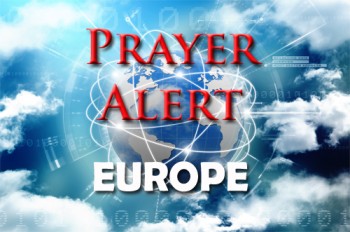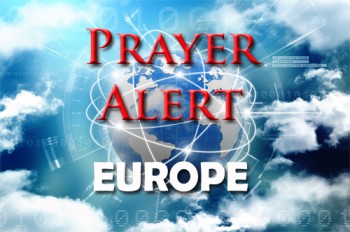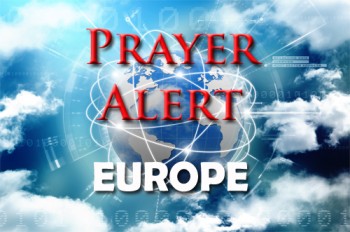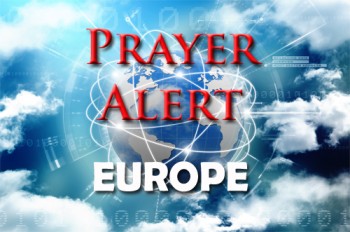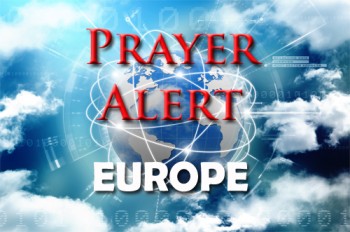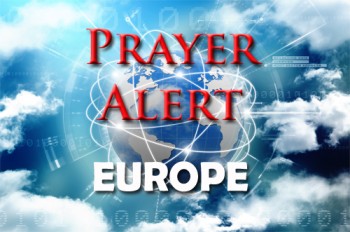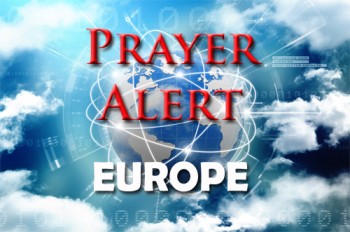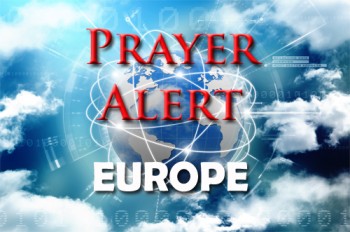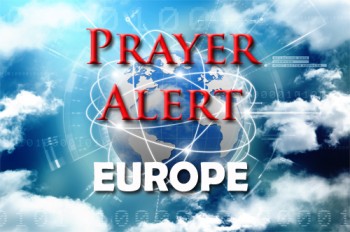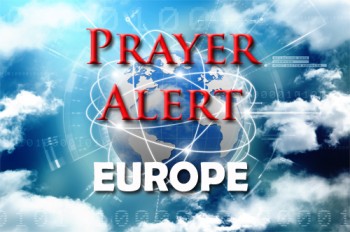Displaying items by tag: Europe
Ukraine: election on 31 March
The Crimean Tatar people have decided to support Petro Poroshenko in Ukraine's presidential election. They said, ‘The most significant criterion in assessing candidates for the presidency is their ability to mobilise Ukrainian society to rebuff Russian aggression against Ukraine and restore its sovereignty and territorial integrity within its internationally recognised borders, which include the Crimea and the city of Sevastopol.’ The Tatars have also called on Ukrainians in occupied Crimea to participate in mainland Ukraine polling stations, and urged diaspora to vote at foreign polling stations. Russia outlawed the Tatar parliament (Mejlis) for ‘propaganda, ethnic nationalism, and extreme hatred towards Russia’.
East-West (mis)-understandings
Romania’s presidency of the EU Council comes at an awkward time. Brexit looms in a matter of weeks. Populist parties threaten to gain seats in European parliamentary elections in May. Sharp differences separate eastern and western European countries on migration policies. Romania’s justice minister has drafted an emergency decree to allow politicians to overturn corruption convictions, including the head of the country’s biggest political party; none of which contributes to a climate of optimism. Yet there are opportunities for better East-West understanding among Christians concerned with the future of Europe. Preparations are well under way for the State of Europe Forum, to be held in Bucharest on or around Europe Day, 9 May. It will promote biblical perspectives in the discussions among participants representing a broad spectrum of Christian backgrounds and disciplines from across Europe.
France: orphans of French jihadist
The grandmother of two orphans of French jihadists held in a Syrian camp is suing the French state for failing to bring them back to France. The children, aged five and two, are in the care of Kurdish militia and ‘in real danger without more international military protection’, said their solicitor, Ms Maktouf. ‘These children, born under terror, should not undergo further suffering. France has a duty to protect them.’ The boy’s mother was aged 14 when she ran away from her French home to go to the stronghold of Raqqa in 2014. Ms Maktouf said she will argue in court that France has a duty of care towards the two orphans because it is a signatory to the UN Convention on the Rights of the Child. No date has been set for a court hearing.
First EU-Arab summit
European and Arab leaders recently held their first summit in a bid to bolster cooperation and protect their traditional diplomatic, economic and security interests while China and Russia move to fill the vacuum left by the United States. Donald Tusk, the president of the European Council, who organises summits for EU countries, acknowledged that ‘there are differences between us’, but said neighbours had much at stake. ‘We need to cooperate and not leave it to global powers far from our region’, he told leaders from forty countries. He did not name those powers, but an EU source confirmed he meant China and Russia. A suspected Russian spy working in the Swedish high-tech industry was arrested in Stockholm on 26 February. He was ‘suspected of being recruited as a Russian agent working under diplomatic cover’. See
Spain: Gibraltar and visa-free travel
In a bitter row over the sovereignty of Gibraltar, Spain has threatened to block visa-free access to the EU for Britons. Madrid refuses to back down on a controversial description of Gibraltar. Spain has made numerous attempts to use Brexit in its efforts to snatch back sovereignty of the Rock from Britain. Prime minister Pedro Sanchez faces a general election on 28 April. The British government maintains that Gibraltar is not a colony, and will continue to defend its overseas territory. During a meeting of EU ambassadors earlier this month, Sir Tim Barrow, the UK’s permanent EU representative, battled with his counterparts in protest at the move to brand the Rock a ‘colony’. ‘Gibraltar is not a colony, and it is completely inappropriate to describe it in this way. Gibraltar is a full part of the UK family’, he stated.
Vatican: first-ever abuse conference
Catholic bishops are meeting to discuss the Roman Catholic church's response to the sexual abuse of children by members of the clergy for the first time. The Vatican says it wants four days of reflection and discussion with survivors and it is likely to be a defining moment for Pope Francis. Before the conference, Archbishop Eamon Martin offered a message to survivors and victims of abuse in Ireland asking for forgiveness and ensuring that church activities are as safe as possible for children and vulnerable people. Meanwhile women in the Contemplative Sisters of St John who were sexually abused by priests when younger, then silenced, are now speaking out. CNN has spoken to several women who say they are victims of the devastating sexual, psychological and spiritual abuse they suffered within the community. See
Europe: Huawei and 5G security
President Trump wants Europe to ban Chinese tech giant Huawei from their next-generation 5G information networks, citing security risks (giving China power inside telecommunication networks where they could modify or steal information or conduct undetected espionage). US secretary of state Mike Pompeo warned of consequences for countries that don’t toe Washington’s line on the issue. Nevertheless, Germany may allow Huawei to operate in its 5G network plans, and the UK thinks the security risks of using Huawei resources are manageable. Huawei set out ambitious plans for Europe at a festive evening to mark the beginning of the Chinese New Year. ‘Europe is like a big, lively family. We feel happy to be a part of it, and look forward to growing together with it,’ said a Huawei representative. See
Europe: recession risk and the church
The economic outlook across the Eurozone has deteriorated in 2019 as the probability of the entire Euro area falling into recession increases. Italy is in an officially-declared recession, and data suggest that Germany, France, and the broader EU are not far behind. Italy and the Netherlands showed industrial production plunging. In the past journalists, pollsters, and academics have debated over whether a recession creates a boom in attendance at evangelical churches. The church is not immune; often ministries in times of recession are forced by lower giving or higher costs (or both) to reconsider where their funds should go and what they need to change to make the most of their resources. See also https://www.christianitytoday.com/ct/topics/e/economic-crisis-recession/
EU / Ireland: further Brexit talks planned
On 7 February, following a ‘robust but constructive’ meeting between Jean-Claude Juncker and Theresa May, who was seeking changes to her Brexit deal, Mr Juncker stressed that the withdrawal agreement would not be redrawn, but he held open the possibility of adding ‘more ambitious’ wording to set out plans for the future relationship. Despite the challenges, the two leaders agreed that their teams should hold talks as to whether a way through can be found that would gain the broadest possible support in the UK parliament and respect the guidelines agreed by the European Council.
France: jihadists from Syria
The US decision to remove 2,000 troops from Syria worries France, which has 200 special forces in areas wrested from IS by the Syrian Democratic Forces (SDF). US forces ferried supplies to French commandos, and helped evacuate French wounded. But the great dilemma is what to do with the 130 French jihadists held by the SDF (along with 770 from other countries). The SDF complains of the burden of guarding so many foreign jihadists, and wants France to repatriate its 130 nationals. The numbers could swell. Another 250 French jihadists are held in Iraq. Many of the detainees are women and children deeply implicated in terrorism. The French prison systems cannot cope with a massive influx of returning jihadists. And if they are tried, it could be difficult to find evidence against them. There are already 150 returnees in the prisons, with thirty due to be freed this year. French intelligence has repeatedly been unable to prevent terrorists on watchlists from staging attacks.
